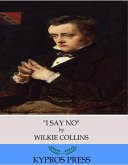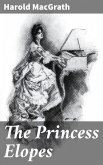In "I Say No," Wilkie Collins crafts a complex narrative exploring themes of morality, freedom, and the consequences of choice. The novel is characterized by its intricate plot and suspenseful pacing, hallmark traits of Collins' oeuvre. The work is situated within the Victorian literary context, which often grappled with societal norms and individual desires, making Collins' examination of his characters'Äô choices particularly resonant. The novel'Äôs dialogue-rich style and psychological depth provide readers with insight into the turbulent emotions of its characters, as they navigate personal dilemmas that challenge the rigid moral structures of their time. Wilkie Collins, a pioneer of the sensation novel, was deeply influenced by his personal experiences and the societal upheavals surrounding him. As a contemporary of Charles Dickens, Collins often drew from his deep understanding of human psychology and societal constraints. His background in law and his close associations with feminist advocates of his time informed his narrative strategies, allowing him to weave compelling arguments about gender and autonomy into his fiction, as seen in "I Say No." This novel is highly recommended for readers interested in the intersections of morality and personal agency. Collins' adept storytelling offers a rich exploration of character and motive, making it an essential read for fans of Victorian literature and those curious about the evolving notions of autonomy and choice in the 19th century.
Dieser Download kann aus rechtlichen Gründen nur mit Rechnungsadresse in A, B, BG, CY, CZ, D, DK, EW, E, FIN, F, GR, H, IRL, I, LT, L, LR, M, NL, PL, P, R, S, SLO, SK ausgeliefert werden.









